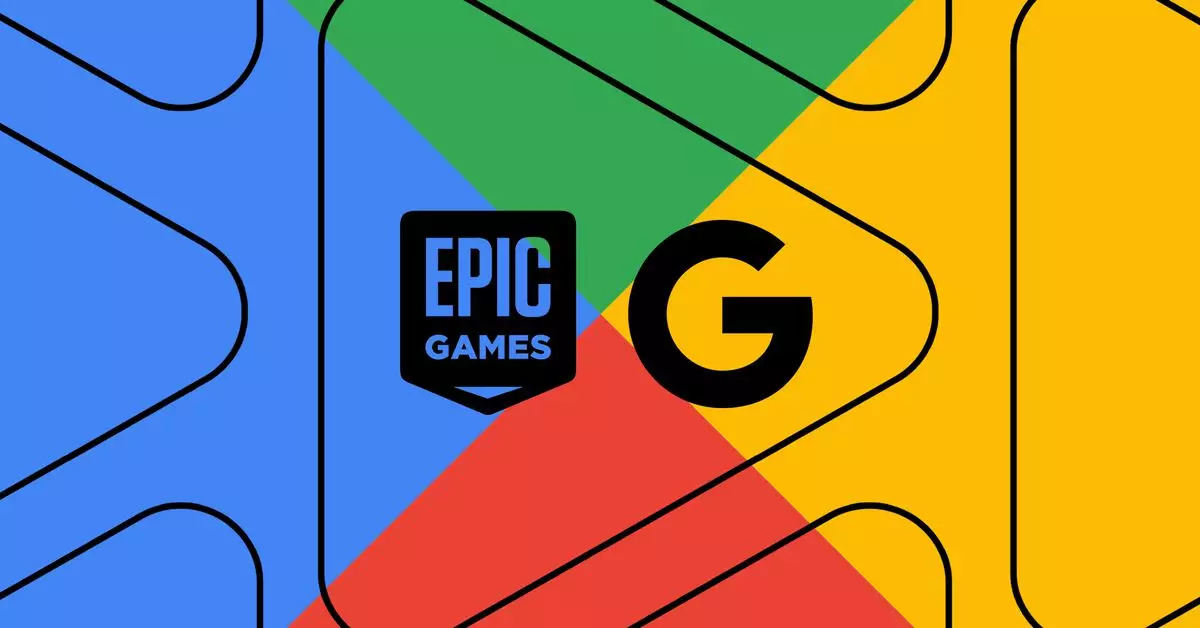The mobile app landscape is constantly evolving, and significant developments challenge the traditional dominance of industry giants. One such advancement has emerged from a strategic collaboration between Telefónica—a major telecommunications provider—and Epic Games, the creative force behind the Epic Games Store and the sensation known as Fortnite. This partnership aims not merely at increasing user access but also at shaking the very foundations of how app ecosystems operate on mobile devices.
Telefónica, which serves millions through its O2 and Movistar networks across heartlands like the UK, Germany, Spain, and Latin America, will start preinstalling the Epic Games Store on every compatible Android device it sells. This move marks a significant first; for the first time, an alternative app store will be integrated directly into smartphones out of the box. The implications of this are profound—it will introduce millions to the Epic Games Store and hook them into its expansive gaming ecosystem, which also prominently features Fortnite.
This initiative represents a long-term commitment between Telefónica and Epic to accelerate the distribution of the Epic Games Store. With this change, users can expect seamless access to a myriad of gaming choices without the cumbersome need to navigate through the Google Play Store—an enticing prospect, particularly for gaming enthusiasts.
Challenging Google’s App Ecosystem
This collaboration aligns with Epic Games’ ongoing battles against what they allege is a monopoly maintained by Google over Android app distribution. In a federal case that has gained significant attention, a jury found Google guilty of monopolistic practices—allegedly pressuring manufacturers and carriers to restrict access to alternative app stores to maintain its dominant position. Epic initially filed suit in 2020, asserting that practices like bribery and coercion hindered the installation of rival applications on devices.
This recent partnership comes mere weeks after a ruling from Judge James Donato, which formally prohibited Google from employing such practices against competitors like Epic. The timing suggests a more aggressive approach from Epic Games to establish its store in direct competition with Google Play, leveraging Telefónica’s reach to maximize user adoption.
One must ponder the reactions from various stakeholders in the industry, especially considering other brand partnerships. How does Samsung interpret this decision? Samsung has previously been embroiled in legal disputes with Epic Games, and seeing a major carrier preinstall the Epic Games Store may raise eyebrows. It’s essential to consider the long-term consequences for manufacturers who have historically aligned themselves closely with Google.
Moreover, this preinstallation model could reshape user expectations and behaviors. Users accustomed to a preloaded app experience may find themselves exploring a different kind of store that provides not just games but potentially a broader range of applications in the future. This could usher in a new era of user choice—one where consumers can engage with software ecosystems that are less tethered to the limitations and control of dominant tech companies.
As for Telefónica, this partnership is not their first waltz with Epic Games. Back in 2020, Movistar introduced a feature allowing its customers in Spain to add Fortnite purchases directly to their phone bills, a move that initially hinted at a budding and strategically symbiotic relationship. The potential financial benefits for Telefónica are substantial; with court documents suggesting that the company stands to earn a share of the revenue generated from Fortnite transactions. This makes the partnership not just strategic but also lucrative.
This partnership could have a ripple effect throughout the industry, potentially encouraging other telecommunications providers to explore similar partnerships or even develop their own platforms to compete with Google. In a rapidly shifting landscape, these kinds of collaborations may introduce a level of competition that could ultimately benefit consumers with broader choices and improved services.
As the curtain rises on this newest chapter of mobile gaming, the implications of Telefónica’s decision to preinstall the Epic Games Store are poised to reverberate through the industry. While many questions remain unanswered—particularly regarding the responses of major players like Samsung—the partnership undeniably marks a pivot point in how mobile apps are distributed and consumed on Android devices. Whether this will lead to greater innovation in the app ecosystem or more intense competitive skirmishes remains to be seen. Nevertheless, the future looks interesting for users seeking options beyond the traditional confines of Google’s app marketplace.

